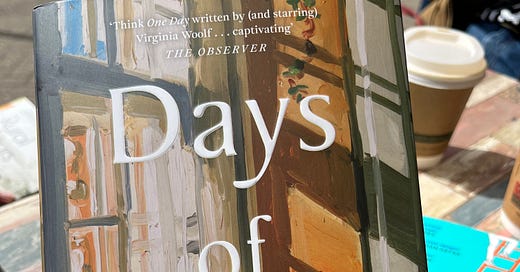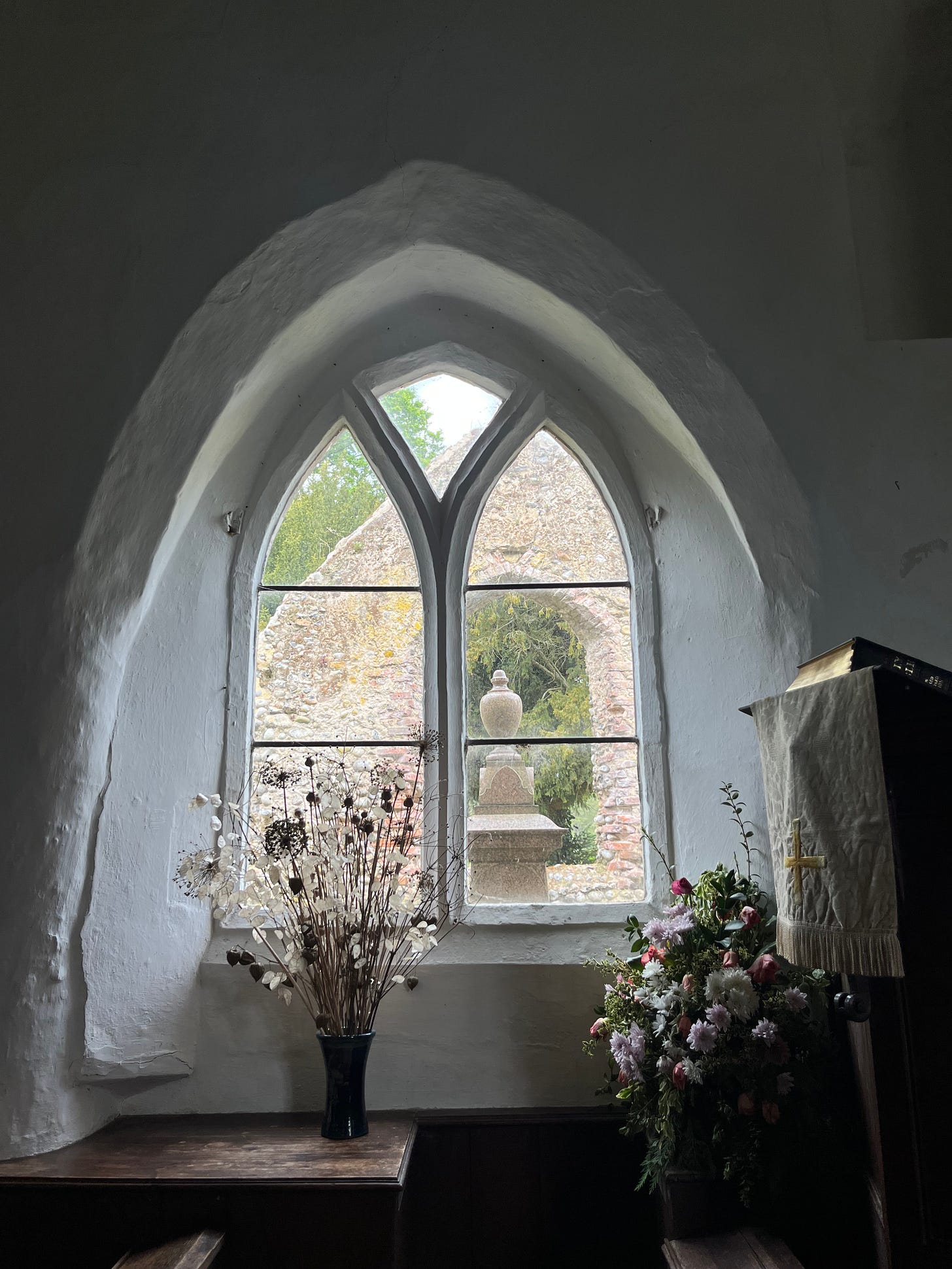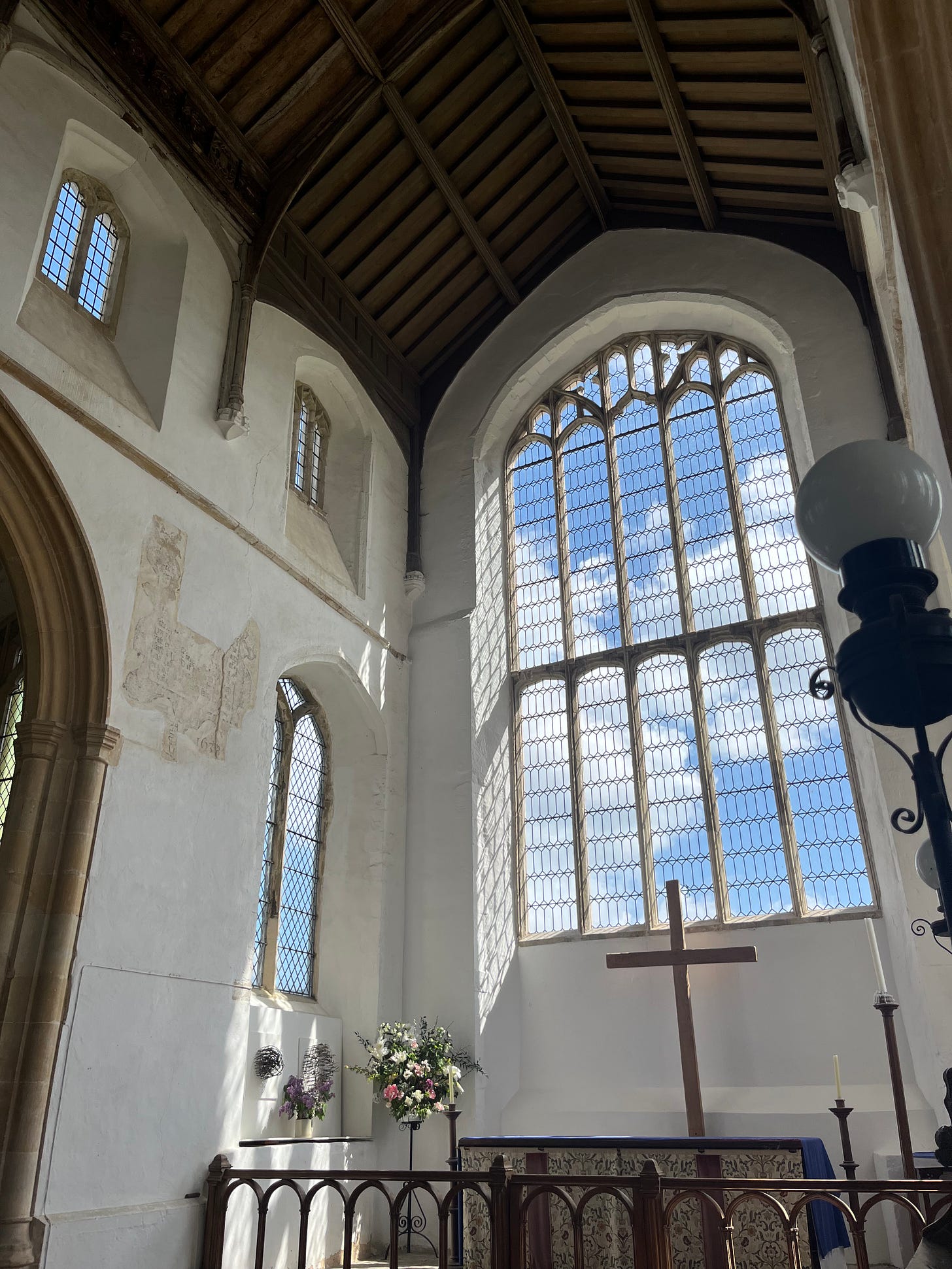It is rare that a novel makes room for true silence; Megan Hunter’s Days of Light definitely does. Hunter’s writing is so restrained, so quiet, and yet full of light and shade. I was really moved and inspired by this book, which my sister Tilda passed over to me while we were in Norfolk with my extended family. She thought I would like it. I was first drawn to it because of the absolutely gorgeous oil painting on the cover.
Her life had been so noisy then: all she had wanted was silence.
The novel begins on Easter Sunday in 1930s Britain (pleasingly I read it on Easter Monday), and is set in a bourgeois literary family, Bloomsbury group being a clear inspiration. It unfolds over the course of six discrete days in the protagonist Ivy’s life, the last taking place in 1999 — each “day” resonates powerfully with the weight of the last, each a carefully chosen synecdoche for the time that has elapsed in between. Structurally, it can be likened to David Nicholls’ One Day; thematically and tonally, there are clear parallels with the work of Virginia Woolf.
She has learnt that she can occupy a single day again, if she pleases, can move within it slowly, its walls sticky with time. [...] She marvels at the way a single day can unravel everything, like a ribbon pulled from a present, the way it all opened in an instant.
Joseph, Ivy’s older brother, accidentally and tragically drowns on the first day of the novel — this is not a spoiler! — when he and Ivy go down to the river together to swim after dinner. The small glimpse we are given into Ivy and Joseph’s tender fraternal bond before he dies is therefore extremely painful. The details of this day are told with the acutely focused remembrance that follows sudden grief, the result of obsessive telling and retelling in our mind over time. The consequences of this enormous loss continue to ripple out over the course of the decades, as Ivy’s life splinters and reforms in unexpected ways.
Joseph had is nose lifted, like a hound; he seemed so brotherly in that moment that Ivy wanted to hug him, to wrap her arms around his body as though it were one of the trees that surrounded him: she felt certain that he would feel as solid, that at his core a trunk grew instead of a spine.
Ivy shifts over the days from daughter, to grieving sister, to postulant, to lover. She has children of her own; she becomes a nun, then leaves the convent; and eventually, this perhaps the boldest choice on Hunter’s part, finds herself in a relationship with the woman who was dating Joseph at the time of his death, Frances. This relationship feels impossible, definitely forbidden, and yet somehow inevitable.
Years later, Ivy would remember this time on the roof as a single image [...]. It was though all of their love could be found there: it couldn’t be true, she knew, and yet it was: every part of the world was entirely itself, and present for them.
The novel is an elegy to grief and memory, to how trauma shapes and reshapes identity. Hunter draws connections between desire and spirituality; desire is written to be as strong as God. One reads Ivy’s life almost as scripture, or as though watching waves on the beach: it is elliptical and elemental, but one senses the weight of the ineluctable at the centre.
Such a force, strong as God, it seemed to her in that moment. [...] There was only this: the fountain of want, the sheer power of it. It was delirium, and a giving-up: no wonder the Church was so afraid of it. But was there not a purity in it, Ivy thought now, when it was like this? There was nothing of the world.
Ivy remains out of reach, partially in shadow — she is receptive, and extremely observant, but gives little away. Nothing is explicit, only murmured. All dialogue is written in italics, a stylistic choice which means you hear it as whispers; speech is certainly set at a distance, and the entire novel feels hushed. We understand that Ivy has been affected by her brother’s death in ways she herself does not express out loud or perhaps understand.
She was crying again, she realised with irritation.
We are always reminded of the closeness of what might have been, the intimacy between our world and the parallel world where Joseph did not die, where one path was taken instead of the other. Time in the novel is fluid and elastic, and all seems to occur simultaneously. Especially in the convent, where Ivy’s experiences of time and its eternity evoke the powerful understanding and solemnity of the revelations of Julian of Norwich in her cell.
Ivy closes her eyes: she sees now, more than she ever has, that all time exists at once, no beginning or end to it. The eternal now, Mother Superior used to say. Eternity is right here with us.
The ideas about religious faith are profound, but all is treated with an impressive deftness and lightness of touch. Hunter’s prose is lyrical and sensual and refined and I never found it pretentious or overwrought; really it’s my favourite kind of writing. I felt that any one sentence of the novel could be taken out and isolated as the cover quotation because each to me stood alone as remarkable. Especially any to do with the haunting recurring metaphor about the ball of light.
She was held, instead, as though by a cord in the flow of a dark river; here, her selfhood was pure, without feature, thousands of years old. [...] Here was life, silent and speaking. Here – after everything, was peace.
I adore the way Hunter writes about light, about God and desire and nature and the sky, about art and family and life and death. It is timeless and sublime and I already need to read it again.





